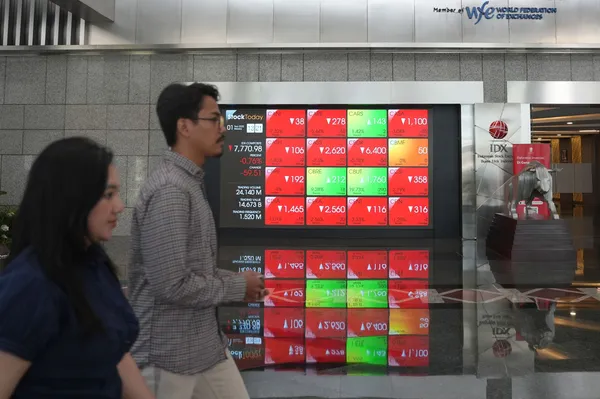
In a volatile global market, the latest development comes in the form of a stock decline, primarily driven by uncertainty over Federal Reserve interest-rate cuts and concerns around the overvaluation of technology stocks, particularly in artificial intelligence. Additionally, cryptocurrencies are facing a downturn, contributing to the overall market turbulence. The Pound also slipped, reflecting the political uncertainty currently gripping the United Kingdom.
This cocktail of financial uncertainties is a cause for concern for investors, businesses, and individuals alike. The average person, whether they're a salaried employee, a small investor, or a business owner, is directly or indirectly affected by these market fluctuations. Let's delve deeper into what these developments mean and how they impact the average person.
Firstly, the uncertainty over Federal Reserve interest-rate cuts is a critical factor influencing the stock decline. Interest rates are a tool that central banks use to control money supply in the economy. Lower interest rates encourage borrowing and investing, which stimulates economic growth. However, unpredictability in these rates can cause nervousness among investors, leading to a stock sell-off.
For the average person, this could mean a potential increase in borrowing costs, affecting everything from their mortgage rates to their credit card bills. Small investors might see their investment portfolio value decrease as stock prices drop. Similarly, businesses, particularly those reliant on borrowed capital, could face higher interest costs, affecting their bottom line.
Secondly, the overvaluation of technology stocks, particularly in artificial intelligence, is a significant factor causing the stocks' slump. Valuations in this sector have skyrocketed due to the increasing integration of AI in various industries, leading to inflated expectations and a potential bubble. The recent retreat in these stock prices could be a market correction, but it could also signal the bursting of this AI bubble.
This development can impact small investors who have invested heavily in technology stocks, potentially leading to notable losses. Similarly, businesses in the tech industry could face a decrease in their market value, affecting their ability to raise funds or invest in growth. Employees in these companies might also face job insecurity if the companies' financial health deteriorates.
Furthermore, the retreat in cryptocurrencies adds another layer of unpredictability to the market. Cryptocurrencies, known for their volatility, have seen a recent surge in value. However, this retreat might signal a correction or bearish trend. This development can affect investors who've diversified their portfolio with cryptocurrencies, potentially leading to losses.
Lastly, the slipping Pound reflects the political uncertainty in the UK. A weak Pound can increase the cost of imported goods, leading to higher inflation. This impacts the average person as it could lead to an increase in the cost of living. Additionally, businesses that rely on imported goods or materials would face higher costs, potentially squeezing their profits.
These turbulent market conditions require careful navigation. Investors should consider diversifying their portfolios to mitigate risks. Businesses should review their financial strategies, considering the potential impact of higher borrowing costs and increased costs of imported goods. Individuals should be prepared for potential increases in living costs and consider secure investment options.
Overall, these market conditions underscore the interconnected nature of global financial markets and the importance of understanding these connections for investors, businesses, and individuals. As these situations continue to unfold, it's crucial to stay informed and adapt to the changing financial landscape.

 Next
Next
Comments (0)
Leave a comment